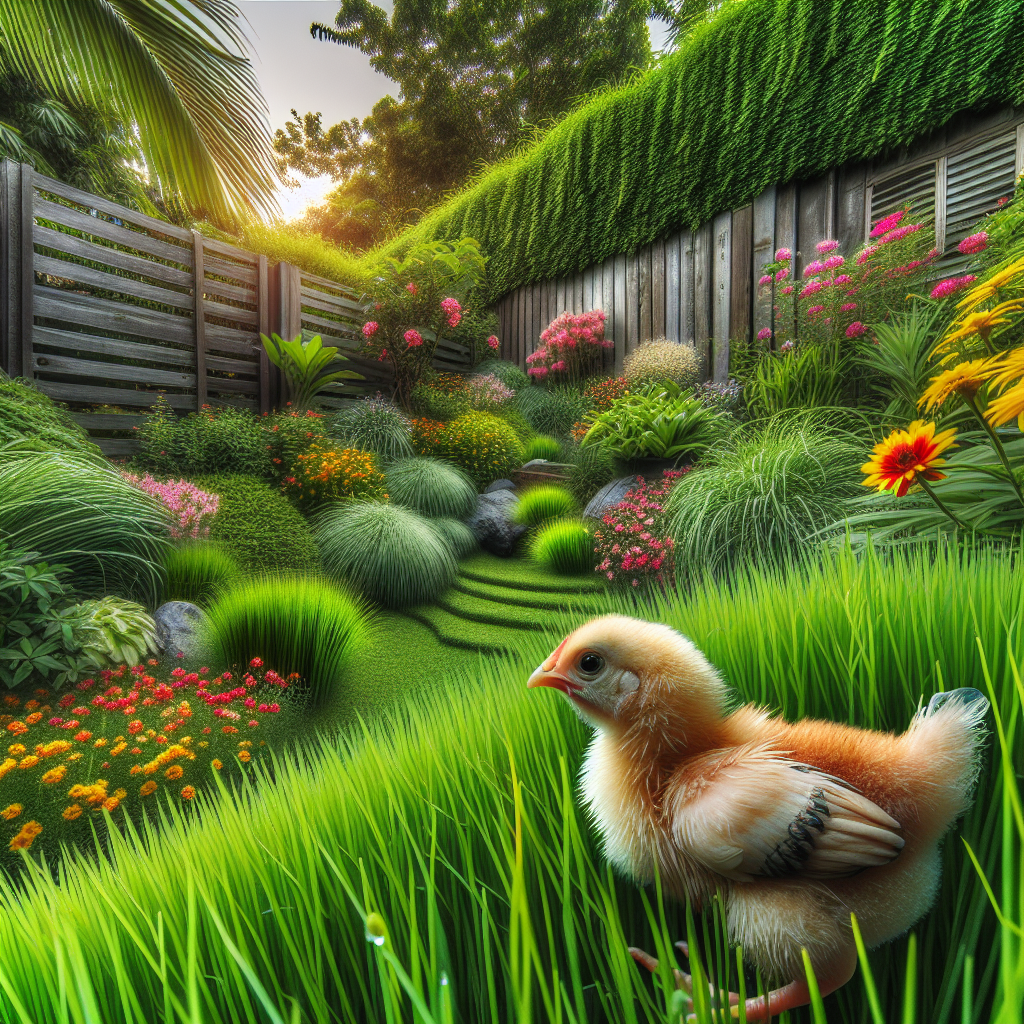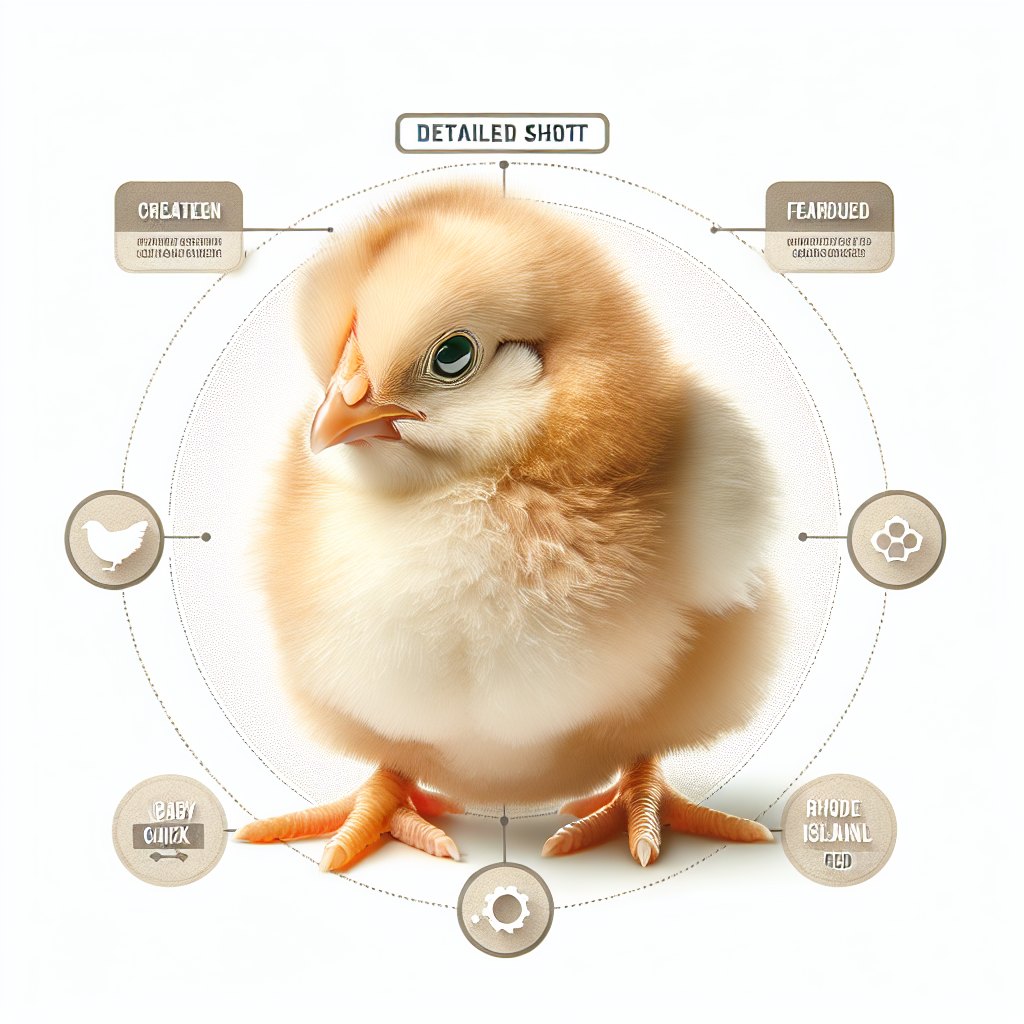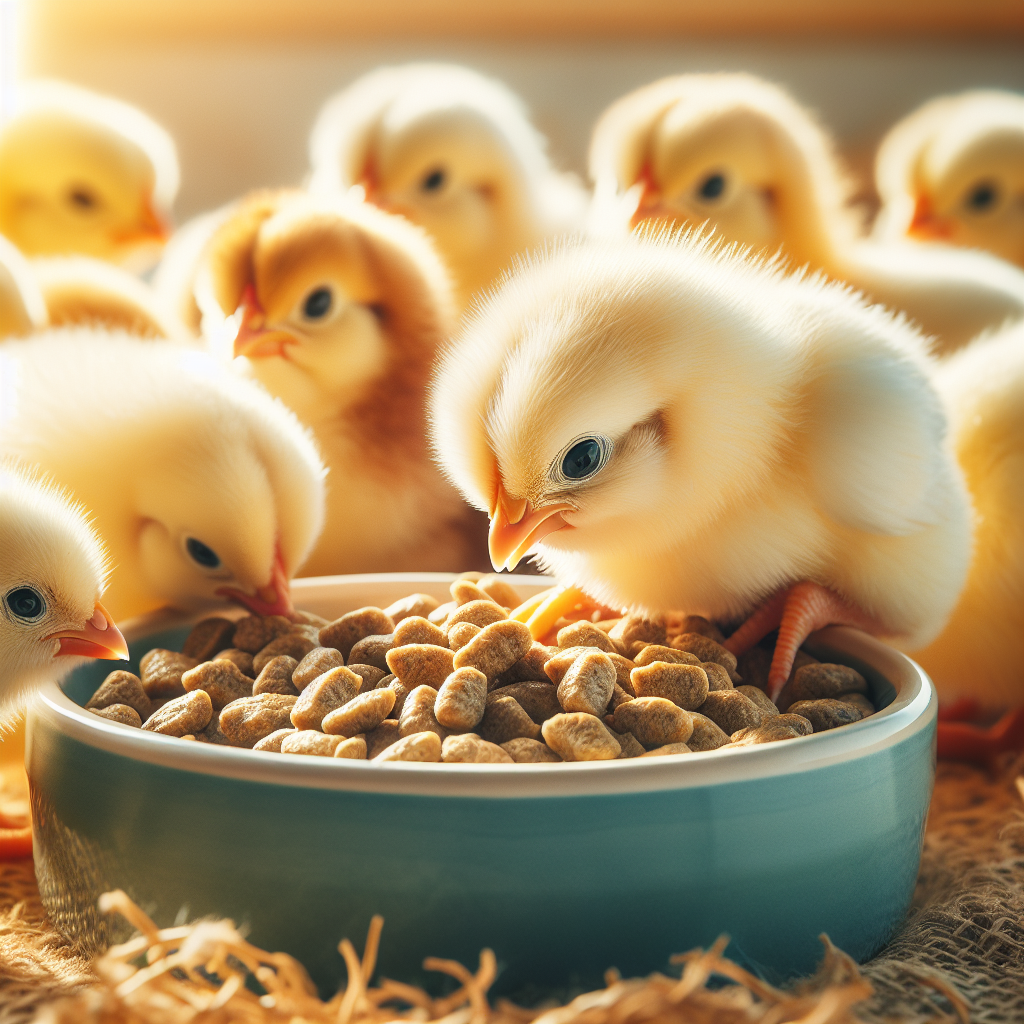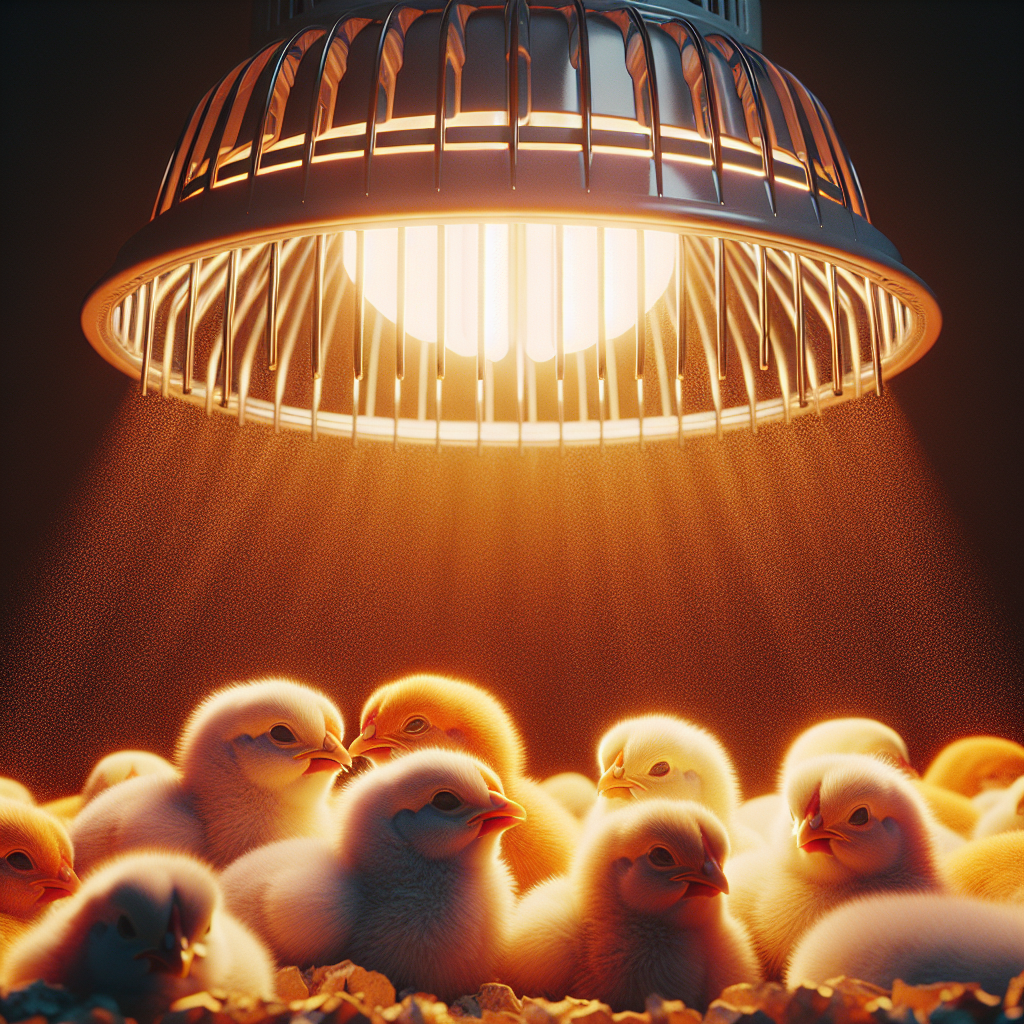Imagine you’re a proud new owner of adorable baby chickens. They’re chirping away inside their cozy coop, but you can’t help but wonder if they can ever venture outside. After all, who could resist the thought of these fluffy little creatures frolicking in the sunshine? In this article, we will explore the possibility of allowing baby chickens to explore the great outdoors, and provide you with some helpful guidelines on when and how to make it happen. So grab a cup of tea, get comfortable, and let’s dive into the wonderful world of baby chickens and their outdoor adventures!
Benefits of Allowing Baby Chickens Outside
Introduction
When it comes to raising baby chickens, there are numerous benefits to allowing them to spend time outside. Not only does it provide them with a natural environment, but it also promotes increased exercise, boosts their immune system, enhances mental stimulation, and contributes to healthier feathers. However, before letting baby chickens explore the great outdoors, there are several factors to consider.
Natural Environment
Allowing baby chickens to experience the natural environment can have a profound impact on their overall well-being. Outside, they can bask in the warmth of the sun, feel the gentle breeze, and peck at grass and insects. This exposure to the elements helps them develop and adapt to their surroundings, leading to healthier growth and development in the long run.
Increased Exercise
By allowing baby chickens to roam outside, they have more space to move around, stretch their wings, and engage in activities that promote exercise and muscular development. This increased physical activity not only benefits their overall health but also prevents the development of muscle-related issues that can occur in confined spaces.
Boosted Immune System
Exposure to the outside environment can help boost baby chickens’ immune systems. The fresh air, natural sunlight, and contact with outdoor bacteria and microorganisms stimulate a natural immune response, making them more resistant to diseases as they mature. Additionally, being exposed to different elements can help develop their resilience and ability to adapt to changes in their environment.
Enhanced Mental Stimulation
Baby chickens, like humans, thrive on mental stimulation. When they are allowed outside, their senses are heightened as they explore new sights, sounds, and smells. This additional stimulation helps keep their minds active and engaged, which is essential for healthy cognitive development.
Healthier Feathers
Being outdoors benefits baby chickens’ feather health. The natural sunlight they receive helps their feathers develop proper pigmentation, resulting in vibrant and healthy plumage. Furthermore, regular outdoor exposure helps prevent feather pecking and promotes better overall feather growth, leading to chickens with stronger, more resilient feathers.
Factors to Consider Before Letting Baby Chickens Outside
Ideal Age
Before allowing baby chickens outside, it is crucial to consider their age. Ideally, they should be at least six weeks old, as this is the age when they start developing feathers and can regulate their body temperature more effectively. Younger chicks are more vulnerable to temperature fluctuations and may not have the necessary protective plumage to keep warm.
Weather Conditions
The weather plays a significant role in determining when it is safe to let baby chickens venture outside. Avoid exposing them to extreme temperatures, heavy rains, or strong winds. It is essential to consider the current weather conditions and ensure that they have adequate shelter and protection from harsh climates.
Predator Protection
One of the most critical factors to consider before letting baby chickens outside is predator protection. Ensure that the outdoor enclosure is secure, with fencing that is buried at least a few inches deep to prevent digging predators from entering. Additionally, cover the enclosure with wire or netting to protect them from aerial attacks.
Vaccination Status
Before allowing baby chickens outside, make sure they have received all necessary vaccinations. Vaccinations protect them from common diseases and minimize the risk of infection from outdoor bacteria and microorganisms. Consult with a veterinarian to ensure your chickens are adequately vaccinated before outdoor exposure.
Chicken Breed
Different chicken breeds have different levels of adaptability to outdoor environments. Some breeds are hardier and more suited to outdoor conditions, while others may be more vulnerable to predators or adverse weather. Research the specific breed you are raising to determine their outdoor suitability and make the necessary accommodations accordingly.
When Can Baby Chickens Go Outside?
Growing Feathers
Baby chickens should not be taken outside until they have started growing feathers. Feathers provide insulation and protection from the elements, allowing them to regulate their body temperature effectively. Once your chicks have a full coat of feathers, they are more equipped to handle outdoor conditions.
Temperature Consideration
Temperature is a crucial factor to consider when determining if baby chickens are ready to go outside. They should not be exposed to temperatures below 50°F (10°C) unless they have access to a warm sheltered area. The ability to maintain their body temperature is essential for their survival and overall well-being.
Supervised Encounters
Baby chickens should have supervised encounters outside initially. This allows them to explore and become familiar with their surroundings while ensuring their safety. Keeping an eye on them also enables you to intervene if any potential risks or dangerous situations arise.
Gradual Introduction
It is recommended to introduce baby chickens to the outdoors gradually. Start by allowing them short periods of supervised outdoor time, gradually increasing the duration as they become more comfortable and adapt to the new environment. This gradual introduction helps minimize stress and allows the chicks to adjust at their own pace.
How to Safely Let Baby Chickens Outside
Secure Outdoor Enclosure
Creating a secure outdoor enclosure is essential to ensure the safety of your baby chickens. The enclosure should have walls and a top made of sturdy wire or netting, with the base buried to prevent predators from digging their way in. Regularly inspect the enclosure for any gaps or weak spots that may compromise its integrity.
Protection against Predators
Protecting baby chickens from predators is paramount. Ensure the outdoor enclosure is predator-proof by adding additional layers of wire or netting to prevent animals from accessing them. Be vigilant and regularly check for signs of predators or any attempts at breaching the enclosure.
Shelter and Shade
Even when outside, baby chickens require access to shelter and shade. Provide them with a small shelter within the enclosure, such as a coop or covered area, where they can retreat during inclement weather or when they need a break from the sun. This shelter should be well-ventilated and insulated to ensure their comfort.
Access to Fresh Water
Fresh water is essential for baby chickens’ well-being, even when they are outside. Ensure they have constant access to clean and fresh water within the outdoor enclosure. Consider using a specially designed waterer to prevent spillage and contamination.
Feeding in the Outdoors
While baby chickens can forage for some of their food outside, it is still essential to provide them with a balanced diet. Place feeders within the outdoor enclosure, ensuring they are secure and protected from rain and pests. This allows your chickens to eat at their leisure while enjoying their time outside.
Supervision and Socialization
When baby chickens are outside, they still need supervision and socialization. Spend time with them in their outdoor enclosure, interacting and socializing. This not only helps build trust but also provides them with mental stimulation and ensures their overall well-being.
Tips for Introducing Baby Chickens to the Outdoors
Acclimation Period
Give baby chickens time to acclimate to their outdoor environment. Initially, keep them in a safe and comfortable enclosure indoors, gradually exposing them to outdoor sights, sounds, and smells. This gradual introduction helps reduce stress and fear, allowing them to become accustomed to the new surroundings.
Start in a Familiar Space
When introducing baby chickens to the outdoors, start in a familiar space. Place their enclosure in an area where they already spend time indoors, such as a covered patio or porch. Being in a familiar environment can help ease their transition and promote a sense of security as they venture outside.
Gradual Exposure to Sunlight
Just like humans, baby chickens need time to adjust to direct sunlight. Begin by allowing them short periods of sunlight exposure, gradually increasing the duration as they become more comfortable. This gradual exposure helps prevent sunburn or other complications related to sudden excessive sunlight exposure.
Outing Duration
Baby chickens should not be left outside for extended periods initially. Start with short outings, gradually increasing the duration as they become more familiar and accustomed to their outdoor surroundings. Monitoring their behavior and comfort levels during these outings is essential to ensure their well-being.
Signs that Baby Chickens Are Ready for Outdoor Time
Feather Development
A significant indicator that baby chickens are ready for outdoor time is the development of feathers. When their feathers are fully grown, they are better equipped to regulate their body temperature and handle outdoor elements. Ensure that they have a full coat of feathers before allowing them outside.
Active and Energetic Behavior
Baby chickens that are ready for outdoor time will show active and energetic behavior. They will display curiosity towards their surroundings, pecking at the ground, and exploring their environment. Look for signs of alertness, curiosity, and engagement, as these indicate their readiness for outdoor adventures.
Comfort with Handling
Baby chickens that are comfortable with being handled and carried are more likely ready for outdoor time. If they show signs of ease and display a calm demeanor when picked up or touched, it is a good indication that they are comfortable and confident in their surroundings.
Appetite and Drinking Habits
Observe their appetite and drinking habits. If they are consistently eating and drinking well, it is an indication that they are healthy and ready for outdoor time. Additionally, a healthy appetite indicates that they have acclimated to their environment and are less prone to stress-related issues.
Precautions to Take While Allowing Baby Chickens Outside
Secure Fencing
Ensure that the fencing around the outdoor enclosure is secure and free from gaps or weak spots. Inspect the fencing regularly to identify any potential vulnerabilities that could allow predators to gain access. Taking steps to reinforce the fencing will help ensure the safety and security of your baby chickens.
Regular Monitoring and Supervision
Regular monitoring and supervision are essential when baby chickens are outside. Keep an eye on them to ensure they are safe and engage in healthy behaviors. Regularly check their food, water, and shelter, and intervene if any potential risks or issues arise.
Protection from Extreme Weather
Baby chickens should not be exposed to extreme weather conditions. Ensure they have a sheltered area within their outdoor enclosure where they can seek refuge during heavy rains or extreme temperatures. Adjust their outdoor time or provide additional protection when the weather conditions become unfavorable.
Avoidance of Harmful Plants
Be aware of any potentially harmful plants in the outdoor area where baby chickens will roam. Some plants may be toxic to chickens, causing digestive issues or even poisoning. It is essential to remove or restrict access to any harmful plants to prevent accidental ingestion.
Preventive Measures against Parasites
Outdoor areas can harbor parasites that could potentially harm baby chickens. Take preventive measures by regularly cleaning and disinfecting their outdoor enclosure. Additionally, provide dust baths or diatomaceous earth to help control external pests, such as mites or lice.
Proper Hygiene Practices
Maintaining proper hygiene practices is crucial for the health and well-being of baby chickens. Regularly clean and disinfect their outdoor enclosure, including food and water containers, to prevent the growth and spread of harmful bacteria. Remember to wash your hands thoroughly before and after handling the chickens to minimize the risk of disease transmission.
Benefits of Outdoor Time for Baby Chickens
Improved Well-being
Spending time outside promotes overall well-being for baby chickens. The fresh air, natural sunlight, and engaging environment contribute to their physical and mental health. Outdoor time allows them to exhibit natural behaviors and instincts, leading to a happier and healthier flock.
Increased Exercise and Muscular Development
Allowing baby chickens to explore the outdoors provides them with ample space for exercise and promotes muscular development. The freedom to move, stretch their wings, and explore their surroundings allows them to develop the necessary strength and agility for a healthy life.
Exploration and Learning Opportunities
Being outside exposes baby chickens to new sights, sounds, and smells, providing them with endless learning opportunities. They can engage in natural behaviors, such as scratching the ground and exploring their surroundings, which enhance their cognitive development and promote essential learning processes.
Natural Foraging Behavior
The outdoors offers baby chickens the opportunity to engage in natural foraging behavior. They can peck at the ground, searching for insects and other tasty treats. This promotes mental stimulation and satisfies their natural instincts, contributing to their overall well-being.
Exposure to Sunlight for Vitamin D
Sunlight exposure is crucial for baby chickens’ health as it enables their bodies to produce vitamin D. Vitamin D plays a vital role in calcium absorption, ensuring their bones and feathers develop correctly. By allowing them outside, they can bask under the sun and benefit from its natural source of vitamin D.
Common Mistakes to Avoid When Letting Baby Chickens Outside
Premature Release
Releasing baby chickens outside too early can have detrimental effects on their health and well-being. Premature release before the development of proper feathers or when they are not yet physically capable of regulating body temperature can lead to health problems or even death. Be patient and wait until they are fully ready.
Lack of Secure Enclosure
Failing to provide a secure outdoor enclosure can have devastating consequences. Predators can easily access vulnerable baby chickens, leading to injury or loss. Ensure that the outdoor enclosure is well-built, with secure fencing, to protect them from potential threats.
Failure to Protect from Predators
Baby chickens are vulnerable to a wide range of predators, both ground-based and aerial. Failure to protect them adequately can result in injury or even the loss of your entire flock. Be proactive in implementing protective measures, such as secure enclosures, fencing, and netting, to prevent predator attacks.
Inadequate Shelter and Shade
Providing inadequate shelter and shade can expose baby chickens to extreme weather conditions, leading to health issues or stress. Ensure that their outdoor enclosure has sufficient shelter where they can seek cover during inclement weather or when they need a break from the sun’s heat.
Insufficient Supervision
Leaving baby chickens unattended outside can result in various risks and potential dangers. Without proper supervision, they may encounter predators, ingest harmful substances, or get themselves into other hazardous situations. Always supervise and monitor their outdoor time to ensure their safety.
Neglecting Vaccination
Neglecting the necessary vaccinations for your baby chickens can jeopardize their health, especially when exposed to outdoor bacteria and microorganisms. Vaccinations protect them from common diseases and help reduce the risk of infections. Make sure your chicks are properly vaccinated before allowing them outside.
Conclusion
Allowing baby chickens to spend time outside brings a multitude of benefits. Providing them with a natural environment, increased exercise, boosted immune system, enhanced mental stimulation, and healthier feathers all contribute to their overall well-being. However, it is essential to consider factors such as age, weather conditions, predator protection, vaccination status, and chicken breed before letting them outdoors. By following the proper guidelines and precautions, you can ensure that your baby chickens safely enjoy their outdoor adventures while reaping the physical, mental, and developmental benefits.




